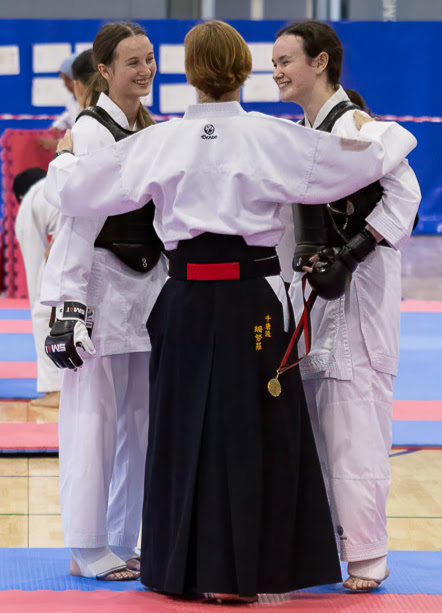How patience, presence, and small wins create a path to confidence for everyone on the journey.
Self-doubt is a familiar adversary to many martial artists. It can surface even in those who have honed their techniques for years but find themselves struggling to trust in their own ability when it matters most.
Helping someone overcome self-doubt requires empathy, patience, and a few key strategies that can gradually build confidence and resilience.
Shifting Focus from Perfection to Presence
One common issue for those grappling with self-doubt is the intense focus on “getting it right.” Often, this pressure leads to a cycle of overthinking, which prevents the flow and spontaneity needed in kumite or any other performance-based activity.
As Dr. Carol Dweck, a renowned psychologist and author of Mindset, highlights, embracing a “growth mindset” can help individuals view their skills as something to develop rather than prove.
By shifting the focus from perfection to presence, martial artists can approach each movement with a spirit of exploration rather than a need to perform flawlessly.
In practice, this means encouraging your teammate to engage in kumite as an experience to learn from, rather than a test they need to pass.
Staying present in each moment and movement can be liberating, allowing the body to respond naturally without the interference of critical thoughts.
This mindset aligns with legendary martial artist Bruce Lee’s principle of “being like water,” which emphasises fluidity, adaptability, and ease in action.
Celebrating Small Wins
Confidence is often built incrementally. Instead of waiting for big wins, it’s essential to celebrate the small victories along the way.
Psychologist and author Dr. Martin Seligman, known for his work in positive psychology, notes that acknowledging small achievements can help create a positive feedback loop.
Even small steps forward—a single well-executed technique or a moment of clarity—can help solidify self-belief.
If a teammate successfully executes a specific movement or feels a moment of calm during a match, these are worthy of celebration.
These small victories, when acknowledged consistently, lay the foundation for lasting confidence and help reframe setbacks as stepping stones rather than failures.
Patience and Perseverance: A Journey of Self-Trust
Working through self-doubt isn’t a quick fix; it’s a journey that requires ongoing patience and perseverance. Each individual’s path to self-confidence is unique, with inevitable highs and lows.
For martial artists, this means trusting in the process and continuing to show up, even when doubt persists.
Author and motivational speaker Brené Brown highlights the importance of resilience, explaining that vulnerability—the willingness to face fears and uncertainties—is essential for growth.
By cultivating a mindset of perseverance, we equip ourselves to navigate setbacks, knowing that each moment contributes to our long-term development.
Whether in kumite or life, self-trust grows as we continue to put ourselves out there, learning to rely on our training and intuition, one step at a time. Over time, this self-trust transforms into confidence, reinforcing the belief that we are capable, regardless of the obstacles we face.
Supporting Each Other on the Path
Supporting a teammate through self-doubt isn’t just about offering advice; it’s about creating an environment where they feel safe to learn and grow.
By showing patience, understanding, and encouragement, we can make a significant difference in someone’s journey to greater self-belief. After all, martial arts is as much about personal growth as it is about technique.
Ultimately, helping others through self-doubt is a rewarding process that deepens our own understanding of patience and resilience.
It reminds us all that self-confidence, in martial arts or any pursuit, is built through a series of small steps, meaningful support, and a willingness to keep going—even when it feels challenging.

“The mind is everything. What you think, you become.” —Buddha

